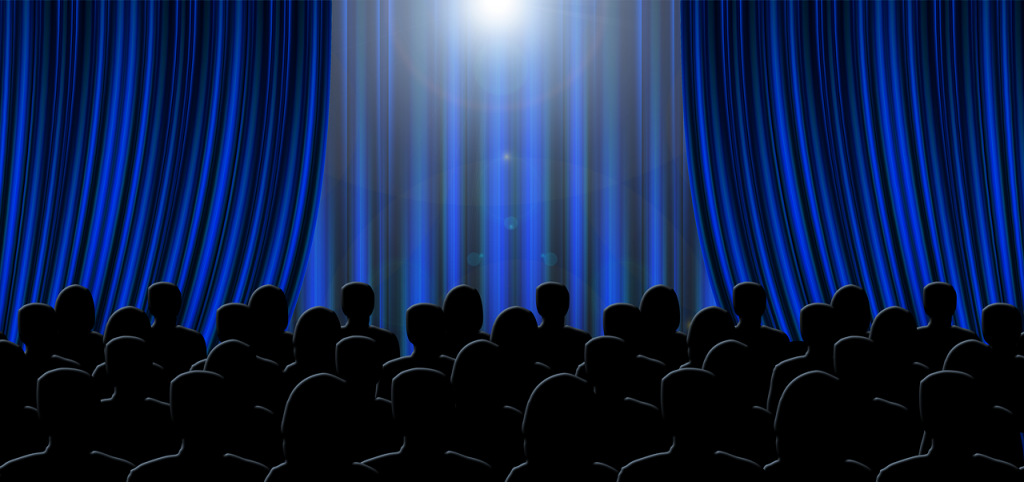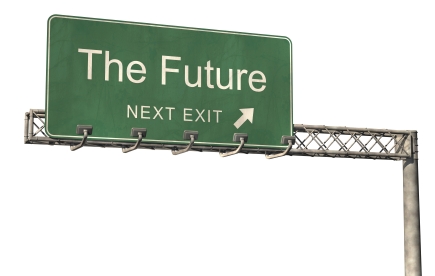The Jefferson-Madison Debates: How to Get the Real News in 2019
February 6th, 2019 // 12:06 pm @ Oliver DeMille
by Oliver DeMille
Part I

Since the night of the 2016 U.S. presidential election, the rules concerning media have changed.
Before this watershed event, a person could get a decent understanding of what is going on each week by consuming three pairs of news products:
(1) a liberal and also a conservative nightly news program or Sunday morning weekly show,
(2) a regular liberal and also conservative newspaper or magazine, and
(3) at least one or two non-typical news sources that include different perspectives (e.g. The Economist, providing a British view outside U.S. Republican/Democrat thinking; Foreign Affairs, a peer-reviewed journal presenting scholarly perspectives on major world trends and issues; and/or a business or cultural publication that addresses news but mainly emphasizes how current events impact the economy and society, such as Fortune, Forbes, The Atlantic, Harper’s, or Vital Speeches of the Day. A number of publications fit this third description, including my favorite, The Harvard Journal of Law and Public Policy.)

Today, sadly, this formula won’t help most citizens understand what is actually happening in our nation. The mainstream media has become almost exclusively partisan, and conservative news outlets, even those striving to be objective, seem to spend most of their resources and energy rebutting mainstream stories. This intense, and often angry, debate between Left and Right media has been good for certain corporations, but not very friendly to truth. The media is mostly agenda now, with far less journalism than in earlier decades.
So how does a citizen keep a close eye on current events? Yes, you can apply the old formula, by reading The Washington Post and The Wall Street Journal every day, but in this digital age the e-media has moved on by the time old-style readers can digest what almost always amounts to “yesterday’s headlines.” The issues people are talking about are more current (to the hour), more edgy, and almost always tainted with partisan spin.
“The facts, ma’am, just the facts,” is no longer a reality in most venues. Also gone to the dustbin of history is the sensible viewpoint described here: “Tell us what happened, and let us draw our own conclusions about what it means. Report the news. We’ll weigh it, consider, and apply what we’ve learned as needed.” These are now mostly sentiments of a bygone era.
In the same vein, “We are journalists; trust us…” is a ridiculous statement that never held much sway. Americans in the 1950s and 1960s largely trusted the news precisely because journalists didn’t expect people to “just trust them”. These same journalists would have laughed off a criticism of “fake news” precisely because the quality of their work wasn’t anything close to fake. The suggestion of “fake” would have made them smile. Today, in contrast, it scares them.
Why? Because agenda news isn’t journalism.
Talking Heads
We have, as mentioned, entered a new era of media. This trend is based on more than the hordes of niche media consumers who frequent only one news outlet that mainly agrees with their own politics, be it mainstream or conservative, broadcast or online, and seldom if ever compare what other news providers are saying. It’s deeper than whether you love Jim Acosta’s “integrity and grit” or dislike his “rude partisan rants”. It also goes way beyond Fox versus MSNBC debates, or whether you love Rachel Maddow, Ben Shapiro, or even Steven Pinker versus Jordan Petersen.
The problem, the real crux of the issue, is that a lot of Americans would still like a simple, balanced, focused-on-the-facts source of news and current events, something they can trust to tell them both sides, and a third or fourth side where applicable, while treating them like adults who think for themselves and don’t need experts to hold their hand and tell them what to think. Foreign Affairs still does this most of the time, as does The Harvard Journal of Law and Public Policy and others like Foreign Policy and Harvard Business Review, but these don’t usually address the daily or even weekly news. They can add a lot to whatever our daily source of news is, but they don’t take its place.
The bad news is that there is no single source we can go to for such news anymore. The good news is that there is a solution. But like a lot of other things in the postmodern age, it requires us to look at things very differently. Specifically: it’s no longer what news source we use to stay abreast of current events; now the focus has shifted to how we read, listen to, or watch the news.
What exactly does this mean? Put simply, the best way to get the most out of the news in our time, to really see through the widespread partisan spin and understand what’s going on in the world, is to call the media’s bluff. We have to stop thinking of the news as media—objective news or fake news—and start seeing it for what it really is: entertainment.

That’s right. The news is entertainment. Merely entertainment. Period.
Twenty years ago this would have been a criticism of those providing the news, but that’s not what I intend here. I am not suggesting that because the news has become entertainment it has lost its value, or turned worthless and untrustworthy. That might be the first thought that comes when you accept that news is now largely entertainment, with only a tiny bit of journalism sprinkled in. But that’s not what I’m saying.
The Good Ol’ Days
We can pine for the old ways—the time when “journalists were journalists” and trust was natural and simple. But this is like telling our kids that when we were young we walked to school everyday barefoot in the snow, uphill both ways. It just doesn’t apply anymore, even if it was ever true. If you’re looking for unbiased, or at least mostly objective media, free of spin, partiality, or partisanship, you’re going to struggle.
Even the journalists who try, who work hard to meet old-style journalistic standards every day, are impacted by the reality that the partisan agenda of many media outlets is itself news, and when one column or broadcast skews the facts, or even presents them truthfully but not transparently, even the most objective newsperson is going to need to show this news—and in passing along the story, and responding to it, even as an attempt to set things straight and focus on the facts, it becomes part of the partisan debate.
This is the tough new reality. If a report is fake, those pointing out its flaws become part of the other side. If, on the other hand, a report is not fake, those showing this are openly at odds with the side that disagrees. Avoiding the battle is akin to going off the air, or stopping the presses. Every story is now part of an agenda, for or against.
So, again, how can the citizen who just wants to know the facts be sure he is getting them? The solution is counterintuitive. If you look for the facts, “just the facts”, you’ll get bombarded by both sides, and you still won’t know which set of facts is most accurate about specific details. This is one reason so many people today simply pick a side and limit their news consumption to one or two sources—those they already agree with, in most cases.

But to really get the most from the news, try a totally different approach. Step back, relax, and stop going the news for facts. Instead, start seeing news as entertainment. They want you to watch, because they want two things. The increased ratings they get when more people tune in. And, just as important, to convince you that their set of facts is the right one. The best one. The one you should trust. Ratings and power, ratings and influence ratings and marketshare, ratings and product sales—this is the new media.
If you’re trying to get the truth, this can be frustrating. But if you’re there to enjoy the entertainment, it can be a lot of fun—and quite informational in the process. It’s enjoyable to see two sports teams fight each other for victory. If you’re too emotionally tied to one team, the game won’t be nearly as fun unless they crush the other side (which means that most of the time you’ll be disappointed). It’s fun to see opposing racehorses push each other around the final turn. But if you’re emotionally connected to one winner, most races lose their joy. It’s fun to watch dueling news reports unfold and reveal which was right. Of course, this only works if you let it. It won’t be fun if you agitate about who is right versus wrong, or who is ruining our country versus bravely sharing the real news. If you get caught in that mousetrap, it’s painful, and confusing.
But if you watch the duel for fun, and pay close attention to the details and who scores more truth today versus tomorrow, which news show gets the most right versus the most wrong, it can be really enjoyable. And, amazingly, you’ll learn a lot in the process—a lot more than the other people in your city, or nation, who love one source of news and hate the other channels, or who are convinced it’s mostly “fake news” or, alternatively, that hardly any “fake news” is really happening.
Nothing News Under the Sun
People on both sides, by limiting who they’ll listen to and closing their minds to different viewpoints, tend to get more wrong than right. Those who are too emotionally connected to one side, against the other, frequently get in the way of their own common sense—they are easily led this way and that, by a news media that is actually now a branch of entertainment.
Only those who openly see that it’s all entertainment, and treat it according, are able to glean a lot of value from the news, and at the same time recognize its glaring limitations and blind spots. People who watch the news for entertainment naturally turn on their analytical and creative brains; thus they understand a lot about what’s really going on. They start “reading between the lines.” And they are much more likely to notice gaps in the media coverage that demand more research and consideration.

The blind followers—on both sides—are too busy being swayed by the latest broadcast, polls, “crisis”, or post. The relaxed thinkers, who knowingly watch the news media as entertainment, learn what the two sides of the political battle are thinking and doing on any given day/night, and they simultaneously have the creative (not emotionally driven) space to see that there are other things, often more important things, happening. They see the news as one little part of the big picture, which means they are watching the big picture—not caught in today’s agenda.
In our current world, watching the news as entertainment is highly valuable. Watching it as journalism is naïve and usually debilitating.
That’s the rub.
And you probably already knew that.
Part II
Let’s apply this on a deeper, and more important level, “the big picture”, so to speak. The ruling elite don’t like it when serious competitors try to rise to their level of power. For example, when Joe Kennedy declared war on the elite establishment and tried to reduce their hold on things, elites fought back. Kennedy’s son, John, was shot in the conflict—assassinated, they say, by a lone gunman. Almost two decades later another man tried to accomplish the same goal—return real power in the United States from ruling elites to the people. Same goal. Similar agenda by a U.S. president bucking behind-the-scenes power, and the same result. Reagan was also shot by a lone gunman.
If you want to be sure your friends think you have extreme political views, tell them this is part of a conspiracy. If, on the other hand, you want to believe the mainstream media, you’ll chalk these parallel historical events up to pure coincidence. The pattern is clear: take on the elite powers; refuse to back down when they use media, academia, and their own experts to discredit your project; and then get shut down by some surprising, unplanned, random event that seems totally unrelated to those in power, to those who directly benefit the most from what happens.
That’s the American history we teach in U.S. schools every year.

Enter Donald Trump. He has openly taken the first two steps in this process. Does this mean Step 3 is coming—some sort of major event that shuts down his project to unseat America’s ruling elite? If so, what do elites have in mind? A Special Counsel probe that finds something truly treasonous and brings an end to a presidency? An economic shock that drastically deflates the economy—like during the Hoover era? A RINO Republican Congress that successfully impeaches a sitting president? Or something else? Possibly an international event that changes everything, something unthinkable like an EMP or foreign use of a biological weapon that impacts the U.S., major devaluation of the dollar, or a sudden debilitating rise in oil prices?
The reality remains to be seen—“to happen or not to happen, that is the question”. But one thing is clear: the ruling elite (in both parties) aren’t happy with Trump. A number of people, and no doubt various groups as well, are brainstorming and planning for significant change. In some way. And soon. Do I know what it is? Not at all. Can you or I guess? Probably not. It will likely be surprising, when it comes. If it comes. But one thing is certain: whatever is coming, few people in the media know about it, and the main focus of the news media is to distract people from what’s ahead—not warn them or help them prepare. The new media is agenda-driven entertainment — not deep wisdom.
Next
To prep the populace for the next crisis would defeat the main objective, which is to get as many people as possible to turn to elites for succor when crises arise.
Here is another certainty: almost nobody who is caught in the emotional daily sway of either media—mainstream or alternative—is giving this much, if any, thought. They are too focused on “the crisis of the day”, a powerful tool of media that almost never fails to get good ratings.
In other words, the only people who clearly see that some serious crisis (or series of smaller crises that build on each other) is coming, soon, and that it will take the nation in new directions that increase the influence of elites, or decrease their influence if Trump (or another outsider) wins the next skirmish, are those who watch the news as entertainment.
Watching the media and getting caught in today’s latest stress won’t help—you, or anyone. Trusting the media, or taking it at face value, won’t help either. This is entertainment, not journalism.

What will help? Simple: watch the media and see the ruling elite and Trump fight. See the tug-of-war as they strategize and clash, rebuild or refocus. Lose a point, win a point. Bluster, regroup, fight again. If you’re relaxed, and watching the media to witness an epic battle between the two main sides, each seeking control, you’ll learn a lot about what’s actually happening. It’s high drama.
Otherwise, you’ll think the daily crisis is actually the news. It’s not. It’s just the 24-hour-cycle contest for ratings, and the power that comes from agenda-loyal customers. But in each daily crisis there is a thread, part of an overall pattern, a back and forth brawl between the elites and their current opponents.
Like I said, it’s fun, or at least interesting, if you know what you’re watching.
Part III
“But what’s happening in our nation, and around the world, is so important.”
“Well, yes. That’s true. But what does that have to do with the corporate-run news?”
“Everything!”
“Wrong. It has almost nothing to do with the news, except that the deep importance of what is happening here and around the world is a powerful incentive to get people to watch. But the news itself isn’t about truth. It should be, one can argue. But it’s not. It’s about ratings and agenda. It’s about keeping the listeners tuned in, and loyal (so they’ll keep tuning in every day); once loyal, it’s about corralling them for political impact. But to make this work consistently, it has to be supremely entertaining. Otherwise, other media outlets out-entertain and get the ratings, not to mention most of the clicks.”
“But that’s so cynical.”
“And so true.”

This is our world now. It’s the “new normal,” as President Obama called it (though he had a flailing economy, not the media, specifically in mind). The problem is that most consumers of news media haven’t yet realized that it’s now just entertainment. As such, if we’re not too emotionally tied to the specifics each night, the news can very effectively teach us lessons because we watch and think about what we see–not directly, but by analogy, symbol and metaphor. There are a lot of useful lessons in entertainment; we can learn so much from plays, good novels, movies, sit coms, and news.
Or, more to the point, we learn best by watching the news like any other TV show, and then really thinking about what we watch—applying our best analytical, creative, and independent thinking to what the various “characters” in the big battle for our nation portray. It’s a very effective way to really understand what’s going on. Yes, of course, we also need to dig deeper, read up on events and issues well beyond what the daily news offers. Unless we go deeper, we’ll be starved for wisdom on a news diet of shallow.
But once we’re digging deeper, the daily fare will become interesting again, full of hints and innuendo that spur us to deeper investigation, rather than emotional spin that sways us like sheep. “Shutting down the government—so bad. The poor federal workers, and the plight of their families.” Or, in the view of the other half of the nation: “So good—long overdue. Shut it down more often. It’s too big anyway. Maybe this is the way to finally prune it back to the right size.” Whatever your perspective, on this or any other major issue, both sides are mostly extreme now. “A border wall is essential”, or “A border wall is evil”.

If we get trapped in this emotional tug-of-war, the news is both superficial and misleading. If we step back and admit that it’s mostly entertainment, and take it seriously as entertainment, a whole new view opens up. We start to see.
Also, it becomes fun. At least, it’s a lot more fun than tearing one’s hair out trying to make sense of the totally different messages (about the very same event) on Fox and CNN. Not that fun is the only goal. At some point we need to do something about what’s going on in the world, especially here at home in our own nation. This is the most important thing we can do. But when we let the media guide us, day in and day out, because we think they’re sharing truth when in fact they’re fully committed to agenda and ratings, then we end up doing mostly nothing. Or we do the wrong things.
Behind the Curtain

The first action in doing the right things is to really understand what’s going on. To do this in the current media environment, we must see behind the curtain and realize that it’s mostly bells and whistles now, mostly spin. All entertainment. But entertainment with an agenda.
Once we’ve made this leap, to the point that we can enjoy the entertaining debate, smile as the plot develops, and call the show what it is, a show, then we can naturally stop getting trapped by the emotion or swayed by the lead characters. We can watch the background, look for subtext and nuances, consider the goals of the directors and producers, and start getting a feel for what the media outlets are actually trying to create.
This is insider thinking, and very few people engage it. If you learn to call the media’s bluff, to treat it as entertainment because that’s what it actually is, and keep watching—but with a deeper viewpoint—you’ll soon begin seeing the real drama, backstage. When this occurs, you’ll be thinking at a whole new level, and instead of media sway you’ll experience a lot more independent thinking about what’s really happening and what needs to change.
That’s the goal. In truth, the only really good media is the kind where the consumer is skeptical, studies more deeply than most people do nowadays, sees all the main sides of the issue, and draws his/her own conclusions. Any media that effectively encourages this, on purpose or by accident, is a conduit to truth. Ironically, in our time, the more our current media turns to entertainment, for ratings and furthering their agendas, the more people are catching on. And, as a result, more people are digging a lot deeper.
This is a great development. We’ve still got a ways to go, but the modern media is doing us an unintended favor by driving more and more people to their own thinking and personal research for real answers. It wasn’t uncommon twenty years ago for most people to trust the media mostly at face value, accepting its words as truth and its anchors as “wise men”. That era is also gone, and it’s about time. If current trends in media continue, it won’t be long until a lot of the nation is reading, digging, researching, analyzing and writing a lot more—at much higher and deeper levels than we’ve seen since the advent of radio, and then television. This is a powerful development.
ACTION ITEMS
But what can we do?
First Action: Forget institutional news as a communicator of truth. It’s entertainment. It’s a show. Have fun with it. Watch it—yes! But forget the way it’s trying to make you feel and what it’s trying to make you think. Instead, compare and contrast, laugh at it, grin at how ridiculous a story is. Take notes—see which outlets and shows end up being mostly wrong, and mostly right. Watch it closely. Like entertainment—that latest episode of your favorite show, where you don’t want to miss anything. Night after night.
Second Action: As you do more of Action One, begin to read more, watch less. Research more, jump to conclusions less. Be more skeptical. Dig way below the surface reports. As you gain expertise on things, write more. Share your findings. Write about truth, not ratings or agenda. Start looking for others who do the same and follow their work.
Third Action: Eventually, as your expertise grows, write a pamphlet. Or, I guess, given our time in history, an e-pamphlet. A report. Blog it. Share it with others. Your voice of truth is important. At least you’ll be aiming for truth. As this approach spreads to more people, reliance on institutional media—funded and dominated by elites—may well go the way of payphones. Replaced by a better approach. It will at least diminish the level of modern reliance on the wrong kind of media. Technology is well positioned to support this change.

Note that this shift is already happening. But you can’t take advantage of it unless you see the corporate news as entertainment and only really trust news that you have personally researched in depth, digging into all sides and going deep.
Funny thing: this is how people in the American founding era approached news. It’s part of what made them such a freedom-loving people. They mistrusted the “official” news from any source, and they studied things out in depth themselves.
As you become the kind of person who deeply studies issues and current events that matter to you, searching for the real truth, and then sharing it with others, you’ll naturally gain more skill in seeing what’s really going on in the world. You’ll learn to effectively see behind the curtain, past the curtain, to read between the lines. You’ll learn how to watch the news and quickly figure out what’s going on, and then research and find out the specifics. Much of the typical news will appear increasingly ridiculous to you—and to others who adopt this approach.
The recent fall of centralized elite media to something less than journalism is at first glance a great national crisis, but if regular people use this situation as a catalyst to end their dependence on media corporations and instead search out the truth of current events for themselves, we’ll naturally witness a significant rebirth of liberty. This is the real power of grassroots. If the corporations won’t give us media focused on truth, we can go find it on our own. Nowadays we must do this, if we want to actually know what’s happening.
By the way, the three actions listed above are exactly what the American Founding generations did in a world where Britain controlled most of the important media. A rebirth of bottom-up news media focused on truth is a good thing for freedom. Indeed, it’s a necessity. Led by each individual.
But this only works for you if you make the change, personally. The corporations and the government won’t do it for you, as much as they want to and as hard as they’re trying.
Category : Aristocracy &Blog &Citizenship &Community &Constitution &Culture &Current Events &Featured &Generations &Government &History &Information Age &Leadership &Liberty &Politics












Sarah Smith
6 years ago
Although I’ve never been much interested in politics or the news, your writings and mentoring (through Mentoring-In-The-Classics and 7 Keys Certification) have profoundly influenced me. I now see freedom as a hugely important topic, and one that deserves much study and reflection so that my family and I can get prepared for the future to come.
I now print out each blog article you post, so I can take time to really ponder what you’re writing about. Little by little, I am learning much about how far our country has gotten off-track from its original foundation, and how much needs to be done to get back on the right footing. Thank you so much for all that you do!
Oliver DeMille
6 years ago
Thank you so much! It’s great to hear your thoughts on this. Freedom really is so important! Glad you’re enjoying the blog.
Aubrey Bills
6 years ago
The ridiculousness of mass media has been on my mind for quite some time and I really appreciate your perspective on the lens we should use while viewing it. I’m eager to use it and see how it increases my understanding of things as they really are! The connection between Kennedy and Reagan is unnerving but fascinating. And thanks for your action items. They spurred me on to actually start the blog I’ve been meaning to start for a while. We live in precarious, but also exciting times. There are so many in the world who hunger for truth and if enough of us will just seek it, speak it, and live it, I really believe that freedom will prevail.
Oliver DeMille
6 years ago
Thanks for the comment. I am addressing this topic in more depth, with some additional important suggestions on what to do about it, in a speech that will be available on March 1. I really get to the code of modern media–what their script is, and what they are hiding (and how to see through it). This is part of the 2019 TJEd Freedom Convention. You can sign up, if you want, at learning.tjed.org. Great to hear from you.
Oliver